Jonathan Pendlebury reveals how the kid from a comp in Rotherham made it all the way to England's rugby union academy set-up
Jonathan Pendlebury’s rise to the position of England Under-18s manager is one built on years of hard work, of sacrifice, of continuously testing and removing himself from his comfort zone.
It is one that flies in the face of common misconceptions about rugby union – not helped by former England coach Eddie Jones’ criticism about ‘cosseted’ boys given everything they need – that it is a sport for the privileged, for the upper classes.
Advertisement
Hide AdAdvertisement
Hide Ad“I’m from a single parent family, went to Swinton Comprehensive School, I’ve got a few GCSEs, but not many,” he says.
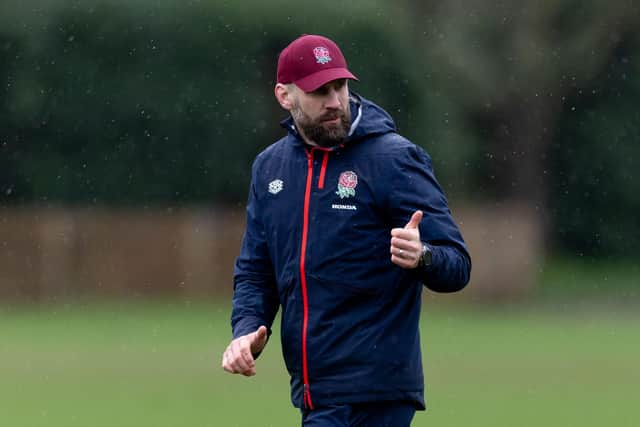

“People say to me you only pick the posh kids. It makes me laugh. You don’t even know who I am. The kid from a comp in Rotherham teaching the posh kids, but there’s a lot that goes before it.”
Pendlebury characterises himself as a ‘trier’ in school. Core values were instilled in him by his family, particularly his mother Anna, a schoolteacher of 40 years, whose instincts to inspire are something he acknowledges he uses more than he realises as he shapes the 16-to-18-year-olds who one day could become England internationals.
He wasn’t supposed to end up here.
Never the most gifted academically, he got by playing sport – athletics, football and rugby – and forging friendships.
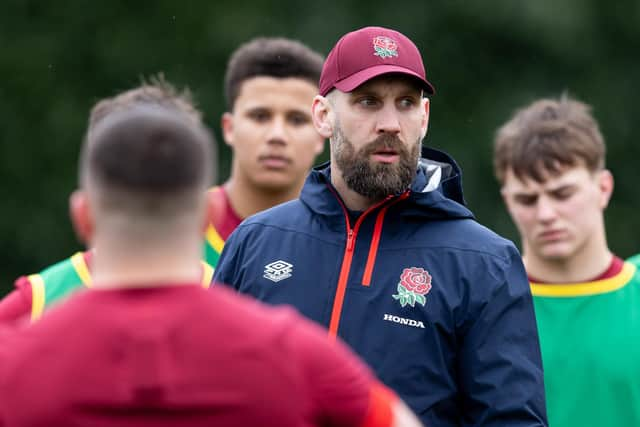

Advertisement
Hide AdAdvertisement
Hide AdPendlebury wanted to be a footballer but was built for rugby, and when all his mates looked at universities in the north, he looked south-west and pursued his rugby dream as an academy player at Bath.
His career began properly back on home soil at Rotherham Titans, the local lock forward with the skinhead.
Gloucester gave him a real chance of establishing himself in the Premiership and Leeds Carnegie gave him his longest stint in professional rugby.
“I knew rugby wasn’t going to last forever,” Pendlebury tells The Yorkshire Post. “I wanted to play for England – it never happened. I wanted to play 200+ times in the Premiership – it never happened.
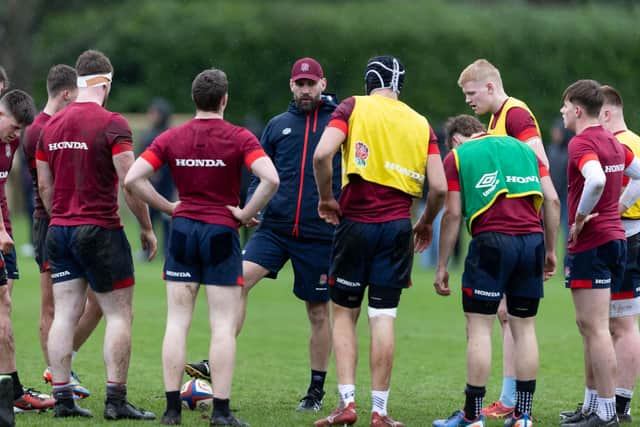

Advertisement
Hide AdAdvertisement
Hide Ad“I knew the level I was, but it didn’t mean I ever stopped trying, just that I needed a job after.”
Injuries that began curtailing his player career offered him an insight into what he would do afterwards.
“I had a couple of long-term injuries at Leeds and as is always the case, the injured lad gets pulled into the community club coaching, but I didn’t mind that, getting sent to a rugby club on a Tuesday night,” he remembers.
“So then it was ‘do I think I’m any good at this? Let’s find out and give coaching a crack’.
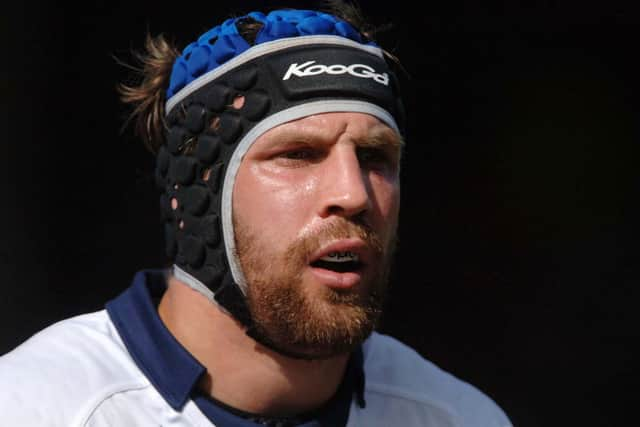

Advertisement
Hide AdAdvertisement
Hide Ad“I’d had a few coaches who I’ve thought were really good at something, not so good at other things, or he delivered this really well but could have delivered it this way.
“I’d got all these thoughts in my head and if I did it, could I do it better?
“So put your money where your mouth is Jon and do something about it.”
He got his RFU level one coaching certificate while in his early 20s at Rotherham, did his level two while at Gloucester and then pursued his level three after retiring from playing while at Leeds in 2012. They saw his potential and offered him a job in their academy.
Advertisement
Hide AdAdvertisement
Hide AdBut with a young family, Pendlebury knew he needed something more to secure their future. So he went back to school.
In the final two years of his playing career he did an Open University course in sports coaching. He finished it at Leeds Beckett University. When they offered to fast-track him onto a Masters course, Pendlebury refused. No short-cuts. He wanted to finish what he started.
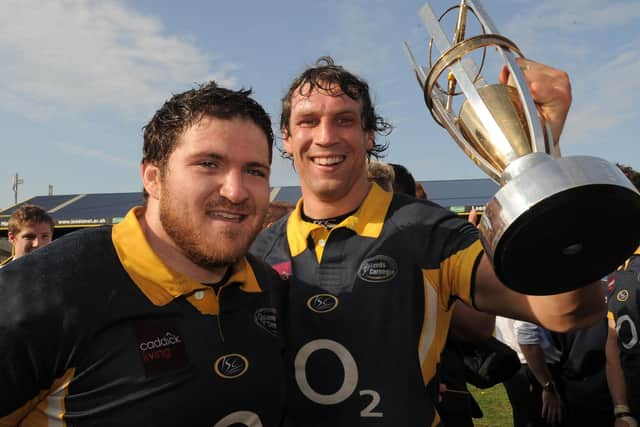

He does have a Masters now, he finished it last October, more than a decade after resuming his academic career. That’s a lot of nights studying after a day at work.
In 2017 he applied for a job as academy manager at Wasps and got it. It meant uprooting his family to the Midlands.
Advertisement
Hide AdAdvertisement
Hide AdTwo years later, and just four months before Covid, Pendlebury took the job as the RFU’s England Under-18s manager.
Four years on, England Under-18s have just won the Six Nations Festival with a 100 per cent record, all after not playing a game for two years due to the pandemic.
Unbeaten season sounds good but Pendlebury’s role in the academy set up under Mark Mapletoft is the development of players, sending them on to the next age group a better proposition than when they began with him, some 18 months earlier.
“What are the needs now for the player that they will need in the future?,” he says of the most basic tenet of his job.
Advertisement
Hide AdAdvertisement
Hide Ad“What do they need to be a part of the best rugby team in the world – to be competing in a World Cup semi-final and a final and to win it?
“A saying I like is ‘what game are you trying to win?’ We’re going to always try and set up and England Under-18s team to do as well as they can, but do you want to be the best schoolboy in the world or do you want to be a world champion?
“The group that Mapletoft and I coached in San Raphael in 2022 lost 28-7 to France in front of 3,000 people.
“That same group went back as 20-year-olds and played in Pau, in France, needing a win to win the Six Nations, and they beat them.
Advertisement
Hide AdAdvertisement
Hide Ad“Now again, does being an under-20s world champion mean you’re going to be a senior world champion or win a Grand Slam with Steve Borthwick? No, but it’s a much better marker and it certainly stands you in good stead of learning and having the experience of playing abroad, of losing in France, of winning in France, so that when you go back in two years or four years in a Six Nations game in Marseille, you’ve been here before.”
Asked what his style of coaching is, “exploring” is a word he commonly comes back to – exploring the needs of his players, positional exploration and even his own capability for self-analysis.
Would Pendlebury ever want to take his skills into a senior environment?
“And coach seniors,” he rebutts. “Nah. I’m not interested in that, I don’t think.
Advertisement
Hide AdAdvertisement
Hide Ad“Developmental coach is a specialist area. If I went into a senior environment there’d be areas I would fall short.”
Not that, given how hard he has worked to get where he is, you would doubt he would quickly make up the shortfall.
Right now he is happy shaping the futures of these young men, young men who come from a variety of backgrounds.
He says that before GCSE age, it is a 50/50 split of people playing rugby who are state school or fee-paying school educated.
Advertisement
Hide AdAdvertisement
Hide AdAfter that, there is an element of looking after the players once they are identified, either in academies or on scholarships.
“I think it can be due to the choices the state school makes where rugby is a hard sport to organise,” he says when explaining the challenges state schools face. “There are the safety concerns that go with it, it is schools stepping away and saying we’d rather not have the risk at this moment in time because a PE teacher can still do it but the other teacher doesn’t want to do it any more.”
His frustration at the ‘posh kids’ accusation is obvious.
“The kid whose mum and dad work bloody hard, and have worked hard all their life but are millionaires because of it,” he begins. “He’s around that behaviour and adopts it, so he works bloody hard. But it’s not his fault they have all this money. But that kid ends up getting tarred as privileged.
“There’ll always be arguments over elitism. In rugby union I think we try and keep as many doors open for as long as we can.”
Advertisement
Hide AdAdvertisement
Hide AdThe game also has a battle with health and safety concerns, most notably concussion.
Pendlebury – who also coaches at his local club Hinckley in Leicestershire – has no qualms about all three of his children (two boys and a girl) playing rugby.
“I think the way the RFU is trying to introduce youngsters to sport is more than appropriate, how they are trying to explore introduction in the minis and the transition to one-v-one tackle, to three in the scrum, to lifting in the lineout, I still think it’s done well and appropriately,” he says.
“So long as coaches are taking the time to educate themselves, whether that is looking online, sharing practices with other coaches, staying up to date with safeguarding practice, and they are coaching good, safe contact techniques in scrum, tackle, ruck, maul, and they’re supporting these youngsters, then yeah I’m cool with it.”
He’s done all right has that lad from Swinton Comp.